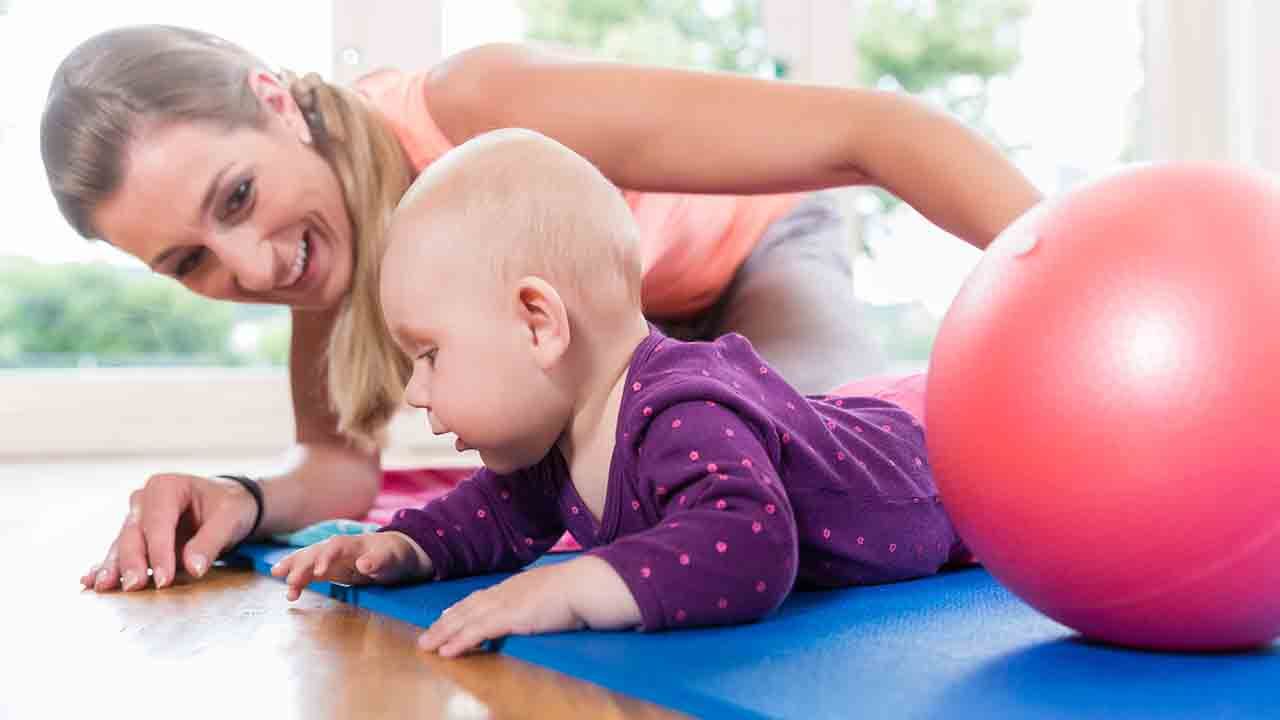Mindset Tips For Body Transformation

If you have a goal to change your body - whether it's to lose body fat, gain weight, build lean muscle or another kind of transformation - mindset is one of your most powerful tools to get you there.
Here are our top tips to help you build a mindset for success so that you can achieve your health and fitness goals.
The right time to be healthier is right now
Ever get started on a new fitness programme or meal plan and stopped because something else came up in life and it became the too-hard basket to continue so you decided to put it on hold?
Pregnancy, moving house, getting sick, getting injured, work got busy, the weather changed, the kids kept waking up at night... there are so many variables to this kind of 'pause' mentality that if you continue to put your health, fitness and wellbeing on hold for them, it will be an ongoing struggle to achieve your goals.
Give yourself permission, get creative, and allow yourself the flexibility to move with these events rather than come to a grinding halt. Getting active in some way every day - including doing a light stretch or walk - is better than doing nothing. Having a side salad with your slice of pizza is better than having no veges at all. Doing two minutes of mindfulness when you planned for an hour is still better than doing nothing.
Form your basic routine of healthier habit changes that will build the skills to work towards your goals, and stick to them in whatever capacity you can every day. Consistency is where most people fail with their health and fitness goals; try to step away from perfectionism and know that a tiny step in the right direction is still moving forwards.
Focus on a positive approach rather than avoidance
Many fitness and diet programmes take the deprivation approach. Remove carbs from your diet. Eat clean and remove all junk food. Stop eating sugar. Pretty simple and straightforward instructions, but have you ever been told not to think about something and all it makes you do is think about it more? We need to flip this around so that it becomes a more positive approach. Get rid of the words stop/don't/avoid/exclude/remove. For example:
Previous goal: Stop overeating during rushed meals
Change it to: Eat slowly and mindfully so you'll feel when your body has had enough to eat.
Previous goal: Stop snacking on junk food
Change it to: Have fruits and veges prepped for snacks in advance so you'll get plenty of fibre, vitamins and minerals to be healthier.
Previous goal: Avoid eating carbohydrates to lose weight
Change it to: Focus on eating standard portions of quality nourishing wholefoods; carbohydrates, protein, fats and vegetables using your hand as a reference. You'll get all the nutrients your body needs to function in a healthy, balanced way and consistency with portion sizes should still help you reach your goal.
Think of some 'negative' habits you want to ditch. Flip them to find a positive approach habit that you could use to replace them, then start doing them each day.
Focus on behaviours rather than outcomes
Most people have an idea in their mind what they would like to achieve when they set out on a new exercise, nutrition or wellness regime. The big focus when you think of your goals in this way is the end outcome; typically along the lines of kilos to lose, dress size to wear, a special event, eat less carbs, complete 20 full push ups or similar. Sound like pretty common goals right? Thinking about your goals in this way isn't bad, but it's not enough. Unless you delve deeper into these goals you have no roadmap to help you get there.
OUTCOME-BASED GOALS focus on how we want to be at the end of it all
One of the other issues in setting goals this way is that we often can't control outcomes. Outcomes can be affected by a range of external factors including high levels of stress, age, hectic schedules, managing family life, hormones, inadequate sleep, injuries, illnesses... the list goes on.
BEHAVIOUR-BASED GOALS focus on the little steps required to achieve the outcome
The thing you can control are the day-to-day habit changes that you need to do in order to get there. Simple tasks that are highly achievable so that you can keep them up consistently. For great quality, effective goals, you need to break them down as small as possible and preferably tackle these mini goals one at a time to avoid overwhelm.
This is also what's going to make your changes sustainable in the long term!
EXAMPLE ONE
Outcome: 'I want to lose 10kg'
Behaviours: Eat slowly and mindfully. Eat until full, not overstuffed. Get purposely active every day.
EXAMPLE TWO
Outcome: 'I want to do 20 full push ups'
Behaviours: Train with a focus on core activation three times a week. Practice push ups three times a week for however many reps you can complete with full range of motion.
EXAMPLE THREE
Outcome: 'I want to sleep 7-8 hours per night'
Behaviours: Develop a sleep routine and begin winding down 30 minutes before bed time. Avoid caffeine from the early afternoon onwards.
Try writing down an outcome-based goal you want to achieve; what skills do you need to practice or learn to achieve it? How can you turn them into daily habits that you can work on each day?
Focus on mastery instead of performance
PERFORMANCE GOALS generally require validation from someone else and/or are often dependent on external factors. For example, completing a running event within a certain time can be affected by the weather on the day. Doing your first triathlon can be affected by injuries, sickness or weather.
These goals can be great motivators, but because of the way they can be influenced, they can also be incredibly demotivating if you don't achieve them for whatever reason. Even if you have specific performance targets in mind, this usually only affects a small portion of your overall time - in between competitions, races or whatever you're aiming for, you need something to focus on the rest of the time to help keep you on track and moving forwards.
MASTERY GOALS are more internalised. They're about working towards improvement, becoming better at something, and finding happiness in the process rather than focusing on the outcome.
Do this by figuring out what skills you need to develop, then convert them into daily tasks and put them into practice every day while tracking your results.
Performance goal: Beat your 10km quarter marathon personal best
Mastery goal: Work on improving your speed and fitness with interval training
Performance goal: Be able to do more full push ups than my best friend
Mastery goal: Practice exercises that develop upper body and core strength
The power to change
Finally, it can be helpful to remember that there are things you can change and things you can't. Things you CAN change include:
- The routine you have each day
- The food you have available to you
- The tools you have
- The people you surround yourself with
If you struggle to eat healthy food, make sure you only have healthy foods readily available. If you can't get to the gym, find an exercise solution to do at home. If you're too tired to exercise, get to bed earlier and form a decent sleep routine. If you're finding it difficult to exercise on your own, invite friends and family to do it with you, go to fitness classes or get a personal trainer. If your friends eat junk food all the time, tell them about your goals and together find some healthier options they'll take on board; also look for opportunities to develop new friendships with people who have similar goals to yourself. If you crave junk food, don't keep it in the house so it's more difficult for you to get.
Notice that many of these points are about your environment; the people and things you surround yourself with, and what's readily available nearby to enable you to live a healthier life. Willpower will only get you so far, but if you make things as easy as possible, you're far more likely to succeed!
Image / DepositPhotos









